Do you have a ‘core story’?
Can you sense the 'weirding' of media and the internet? The best way to respond might be to make a bolder human stand in the world, after planting our two feet more firmly on the ground.
Dear reader,
This article goes right to the heart of what my work and fascinations in life are all about: uncovering, clarifying, expressing and bringing to life core stories of meaning, value, truth and purpose.
A few updates
In the final weeks of 2024, I invited a diverse group of thinkers to the headquarters of the World Press Photo for an event titled “Beyond Tragedy”.
We started with a guiding question:
What are the most helpful stories for the now?
The intention was to ‘sit with the shit’ of the world right now. We considered what of value might exist in the space between the hopelessness of nihilism and the hopium of ‘wishdreamery’, the state in which we soothe our souls with glorious imaginary futures that might never be.
We also wondered:
Can we imagine stories that fully recognise the human predicament, while also being practically helpful to people living in the now, in tangible ways?
As you can imagine, we didn’t find the magic answers to such broad, existential questions, but simply gathering around these questions was helpful and inspiring in itself. Interested in attending future gatherings, either in the Netherlands or online? Please register here.
Built to create
Before I continue, I wanted to show off the ‘creative cockpit’ I built. It’s entirely geared towards live visual communication and rapid media production, so I can offer remote story sessions dan narrative consultations across the world in real time.


The green wall behind me allows me to live stream video like a weatherman.
If you’re looking to update the core story of your organisation, project or professional practice, check out ‘to the core’.
Ok, get ready for some depth. The ideas below might feel heady or philosophical and that’s deliberate, because I want to provide real value to those who read.
Also, these thoughts set the stage for upcoming articles.
The power of stories
We’re the only animal we know of that engages in complex meaning-making. For humans without stories, life can feel quite meaningless.
You might picture bedtime tales, campfire yarns, or “pub with friends” anecdotes when you hear the word story. However, stories are so much more than that.
When combined and grown into vast mythologies (think political ideologies, religious movements, national identities), they have created and destroyed massive empires. Stories gave us money and cryptocurrencies. They also fuelled some of history’s worst collective delusions and atrocities.
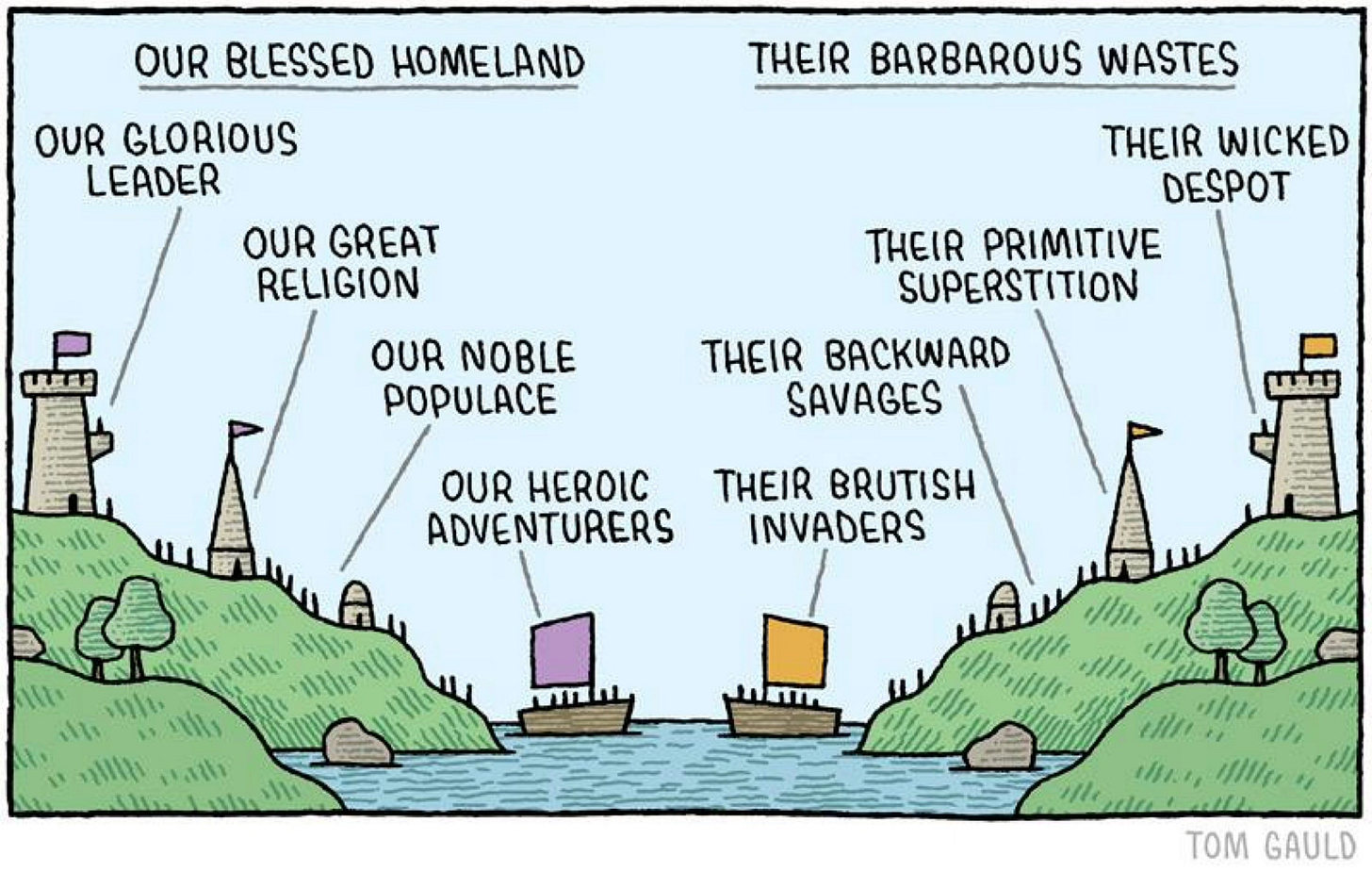
Conversely, stories inspired humanity’s best achievements as well: health care, education, libraries, and the Universal Declaration of Human Rights. All of these are founded on grand narratives of empathy and shared identity.
So what are stories, really?
My personal definition of a ‘story’ is quite broad and a bit technical:
Stories are networked structures of events, observations, emotions, interpretations, ideas, concepts, values, beliefs, and aspirations that carry us from past to future, while revealing truths that shape how we see ourselves in relation to the world.
Stories craft meaning out of information and in a way they function like the operating systems of human realities.
Might we be unaware of most stories?
Just like fish don't notice water, every day we swim through cultural, familial, and habitual stories without noticing their deep influence.
Much of what we label as “just the way it is” could be viewed in a completely different light if we had managed to deconstruct some foundational stories, that operate on many different levels.
Unlike fish, we have the ability to identify and deconstruct stories. When we do so, we can eventually begin to shape our own, deliberately constructed meanings and thereby we can live life more as our authentic selves.
How can we best deal with the 'story gap'?
We’re now in a hyper-connected, yet fragmented world. As mentioned in my previous newsletter, guiding political, religious, and communal narratives are eroding, particularly in the “western world”.
While the past was never perfect and shouldn’t be idealised, local, face-to-face communities once offered shared stories that bonded people in their shared place and purpose.
Today, our attention has shifted from our surroundings to global and virtual interests, at the cost of the direct human connection we need as mammals to enjoy satisfying lives.
Meanwhile,
guiding stories for the world ahead
aren't yet so clear.
Social media and the ‘flattening of thought’
We all sense it: social platforms have “connected” the world but often leave us together alone. This trend is quite obvious: in metros during rush hour, in waiting rooms and office lunch breaks, many people are habitually not physically present but ‘on their phones’.
Social media diminish local community bonds, contributing to atomisation, separation and loneliness in physical space leading to growing mental health issues.
Short form video flattens our world view
I believe that especially short form videos have a powerful ‘flattening’ effect on our thinking. Short form videos directly talk to our lizard brain, which is purely focused on fear (threats) and desire (needs).
By speaking directly to fears and desires, our prefrontal cortex doesn’t get a chance to develop the complex neural networks needed for larger understandings of reality, because short form video feeds offer mostly disjointed, ‘engagement’ oriented, dopamine inducing, emotionally triggering information.
Tip: Next time you’re scrolling videos, consider what emotional sound different videos evoke and perhaps verbalise them audibly.
It will probably be somewhat like this:
An interesting fusion recipe: 😋 yummy → a good joke: 😂 hahaha! → a nice productivity tip: 🙂 hm! → a sexy person doing a dance: 😏 oh lala! → kids in a warzone: 😱 yikes! → cute cat: 😊 nawww — and so on and on...
While our lizard brain is being spoken to, all the meanings we come across are pushed towards equal value and blended into a colourless, flavourless experiential smoothie with little to no nutritional value.
Changing realities + missing narratives = lack of meaning
We are dealing with:
Declining shared, communal stories
Obstacles to building broader, more coherent worldviews
Growing social, economical and ecological disruptions
Combined, this can leave us unsure of our purpose. Some patch this ‘vacuum of meaning’ with conspiracy theories, spiritual bypassing practices, and other escapist extremes of all sorts.
Some philosophical takes
Philosopher Byung-Chul Han has said:
“Truth, the provider of meaning and orientation, is also a narrative. We are very well informed, yet somehow we cannot orient ourselves. The informatisation of reality leads to its atomisation — separated spheres of what is thought to be true.”
Following such lines of thought, the late French philosopher Bruno Latour identified different “planets” to represent different mindsets about how we relate to the world, that have emerged as a response to the vanishing of shared stories.
The Modernity Planet
Rooted in a strong belief in rational progress and the pursuit of scientific, technological and industrialised mastery over nature and people, often overlooking ecology and social fallout.
The Globalisation Planet
This planet envisions a seamless, integrated world driven by economic growth and global trade that promises boundless propensity, often at the cost of equity and sustainability.
The Vindication Planet
Yearning for and desperately holding on to an idealised, possibly mythical past, with a tendency to blaming external forces for current challenges, deepening tribalism and social divisions and exclusions.
The Security Planet
Responding to threats by a defensive retreat into isolationism and border fortifications, gated communities and protected enclaves, often at the cost of peace, collaboration and global responsibilities
The Exit Planet
Attempting to escape earthly troubles through transhumanism, AI, space colonization, or virtual realities—offering exciting yet often delusional visions of a future where technology will fix everything.
The Anthropocene Planet
This planet fully acknowledges human impacts on the Earth but struggles to find clear pathways for harmonious coexistence with the more than human world, leading to nihilism and hopelessness.
The Terrestrial Planet
This is the planet Latour advocates for: a grounded reconnection with the Earth, that embraces ecological interdependence and shared responsibilities. It calls for a shift away from domination and exploitation, focusing on sustainable and reciprocal ways of living and being that align with the biological realities of a changing world.
So, what to do?
The harsh, nihilistic truth saying of the Anthropocene Planet isn’t so helpful, while the Exit Planet fuels mass psychoses evoked by tech-driven delusions.
How can we live on the Terrestrial Planet?
The Terrestrial Planet invites us to stand firmly on the ground under our feet, fully present in our bodies, in our relationships, and in our moment in history, as we proactively reconnect with our origins as much as we are able to.
Our origins are comprised of the universe, the ancient stardust in our bodies, the ecosystem we are the fruits of, the people around us, our families, friends, colleagues and mothers, our bodies and the place and moment that we currently inhabit, because:
We originate ‘out of’ this particular moment, right now.
Just like a zen master will physically defend their life against a bodily attack if they must, because it is the most reasonable response, connecting to the Terrestrial Planet doesn’t mean we should be floating in a blissfully passive state of being while the world is on fire.
Personally I find Thích Nhất Hạnh’s concept of ‘engaged buddhism’ that he developed in the 1960’s as relevant today as it was back then.
The dehumanising effects of AI
Artificial intelligence is already massively influencing online content, as gradually more people are submitting to this new reality. Yuval Harrari has argued that AI’s are not ‘new media’ but the first non-human agents among us. And that it doesn’t matter if they are conscious or not for them to be very dangerous as ‘meaning generating machines’.
Where we might go next
In a time of decreasing value and dehumanisation of information, becoming deeply, powerfully human could be our best next move. Being fully present in our surroundings, breathing deeply and if we feel our mind is spiralling, taking a mindful walk, noticing the sunlight, the textures, the breeze. Simply things.
And we can go further than just being mindful. We can proactively reconnect with fellow humans in physical space. And we can connect more authentically than before by establishing a strong core story that flows from the inside out.
The importance of a core story
Your core story is like the constitution for your organisation or professional practice. It clarifies who you are, why you exist, what you care about, what you need and what you have to offer to the world that is of great value to others.
With a core story, we put a stake in the ground and declare ourselves.
Core stories vs. marketing
Instead of framing your core story around what you think people must to hear (which is ‘a’ story), try to formulate what drives you from the inside out, because authenticity is more compelling than any formulaic, hyper optimised “brand voice” could ever be.
Consider this:
What if you stopped pretending in your advertising and on LinkedIn?
What if you laid bare the unique values, qualities and skills already within you, instead of continuously seeking for ‘magic keys’ out there?
What would you say and how would you say it if you had no fear of judgment?
Core stories are not advertising, marketing, branding, PR, content or corporate communication, although paradoxically a strong core story can massively empower all of those.
Core stories are simply true, they are meaningful, clarifying and above all: human. They can be a breath of fresh air to many in the world of today.
A proposal to you
I have build core stories for many organisations throughout the years. Now you are cordially invited to tell me about your organisational or project core story, either online or in real life.
Here’s the deal:
I aim to help you gain some clarity.
I get to test new story crafting methods.
I will charge you nothing, as long as you feel it’s an important story.
Curious? Ask a question or view the to the core process
Courageous? Schedule a call.
Thank you for making it all the way down here!



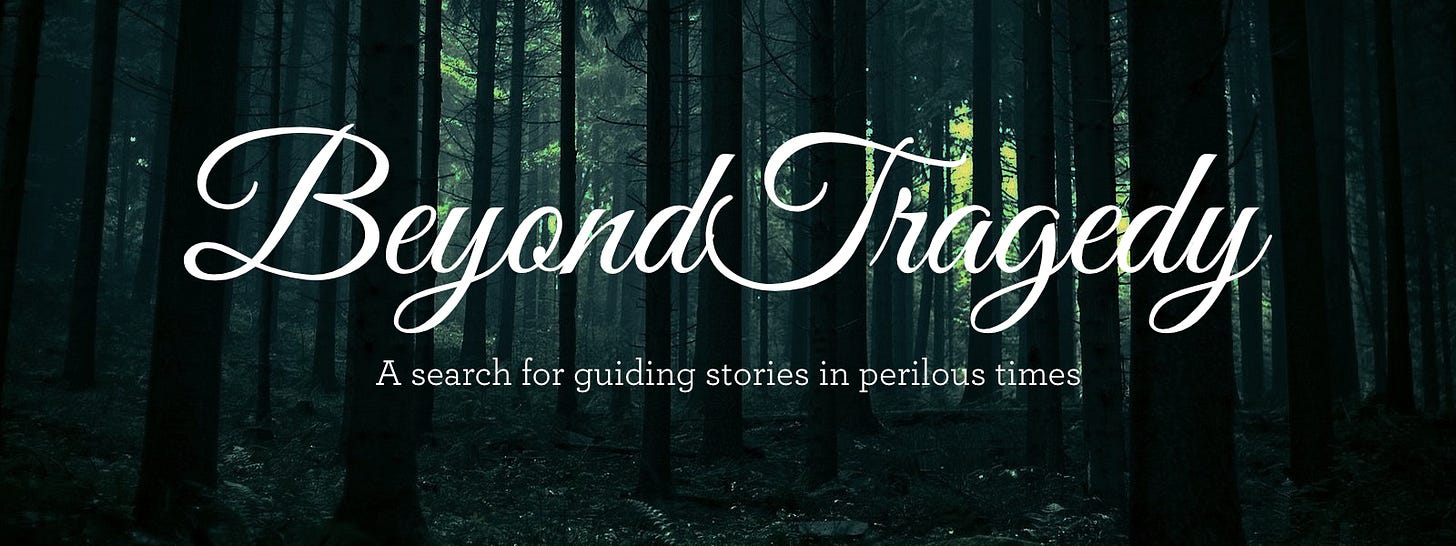
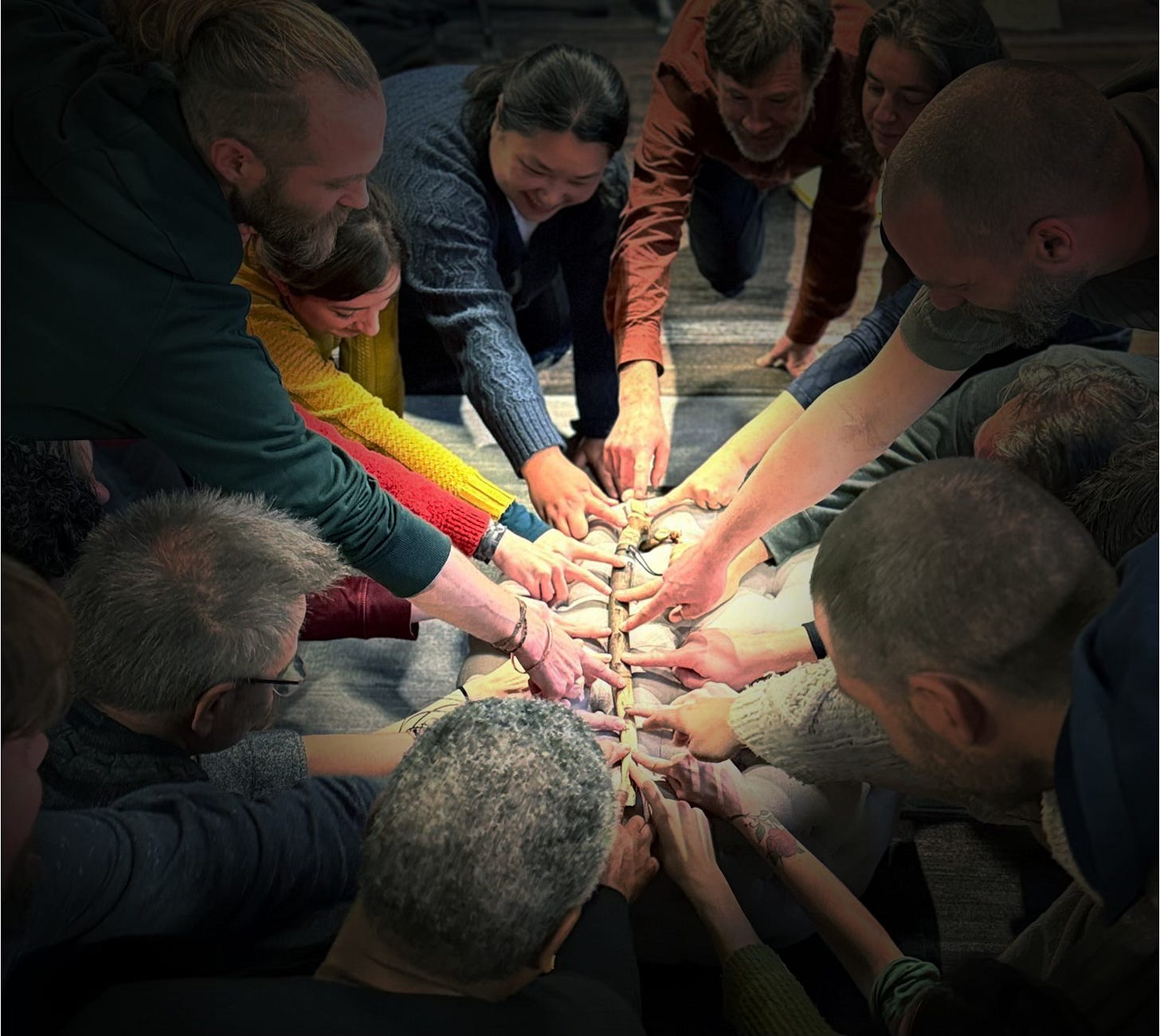
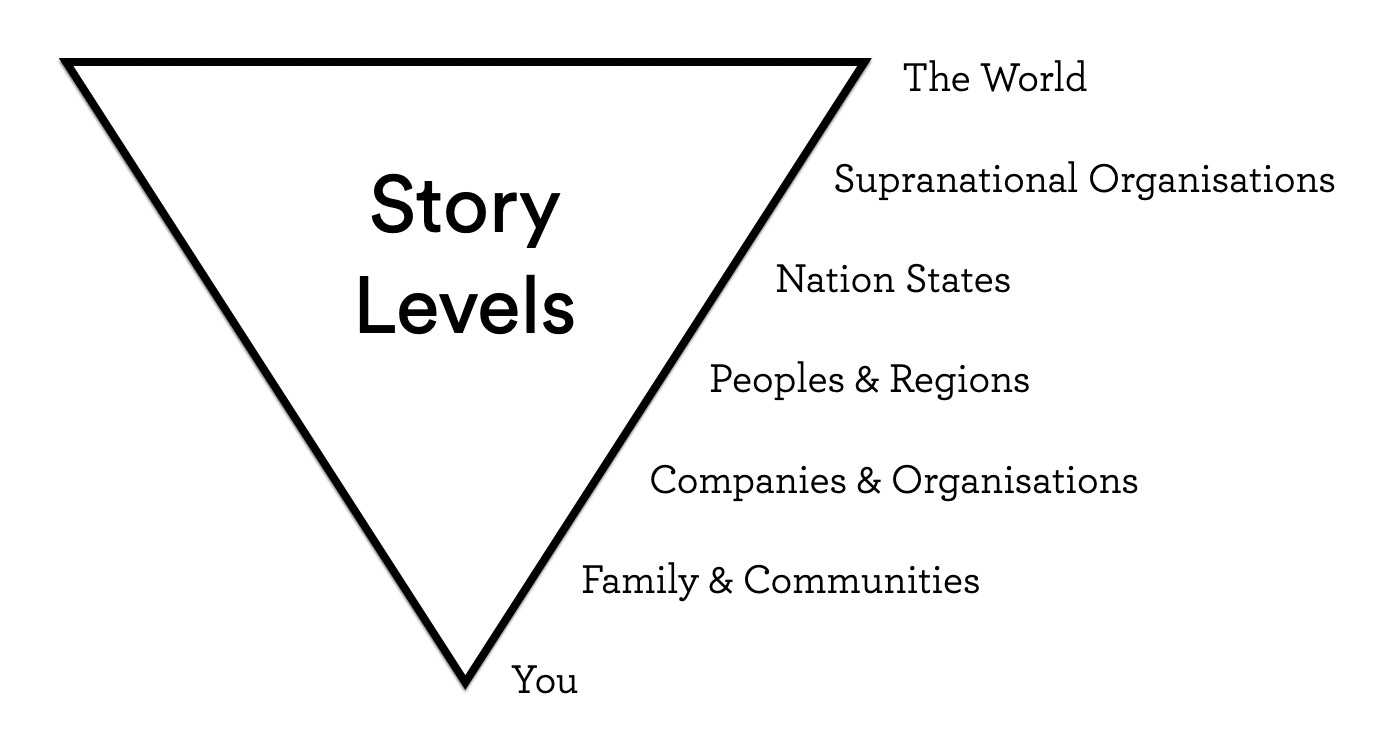
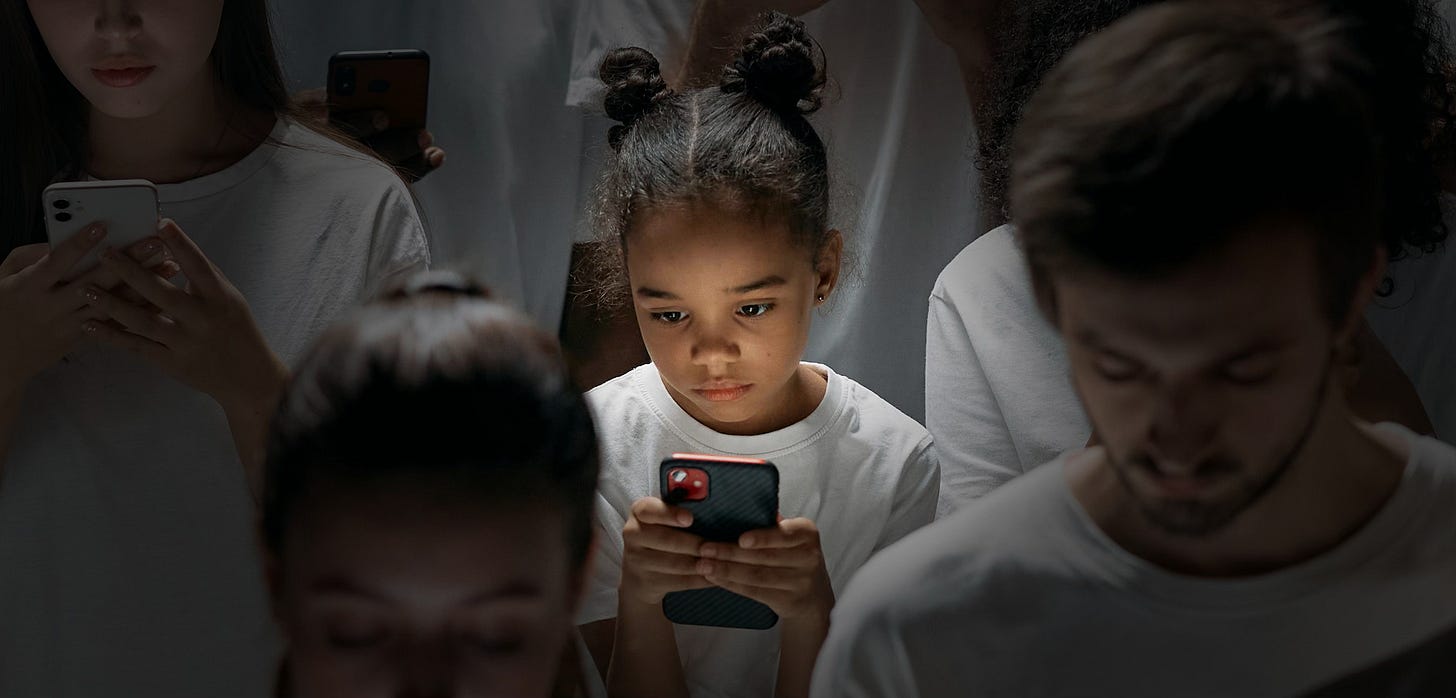
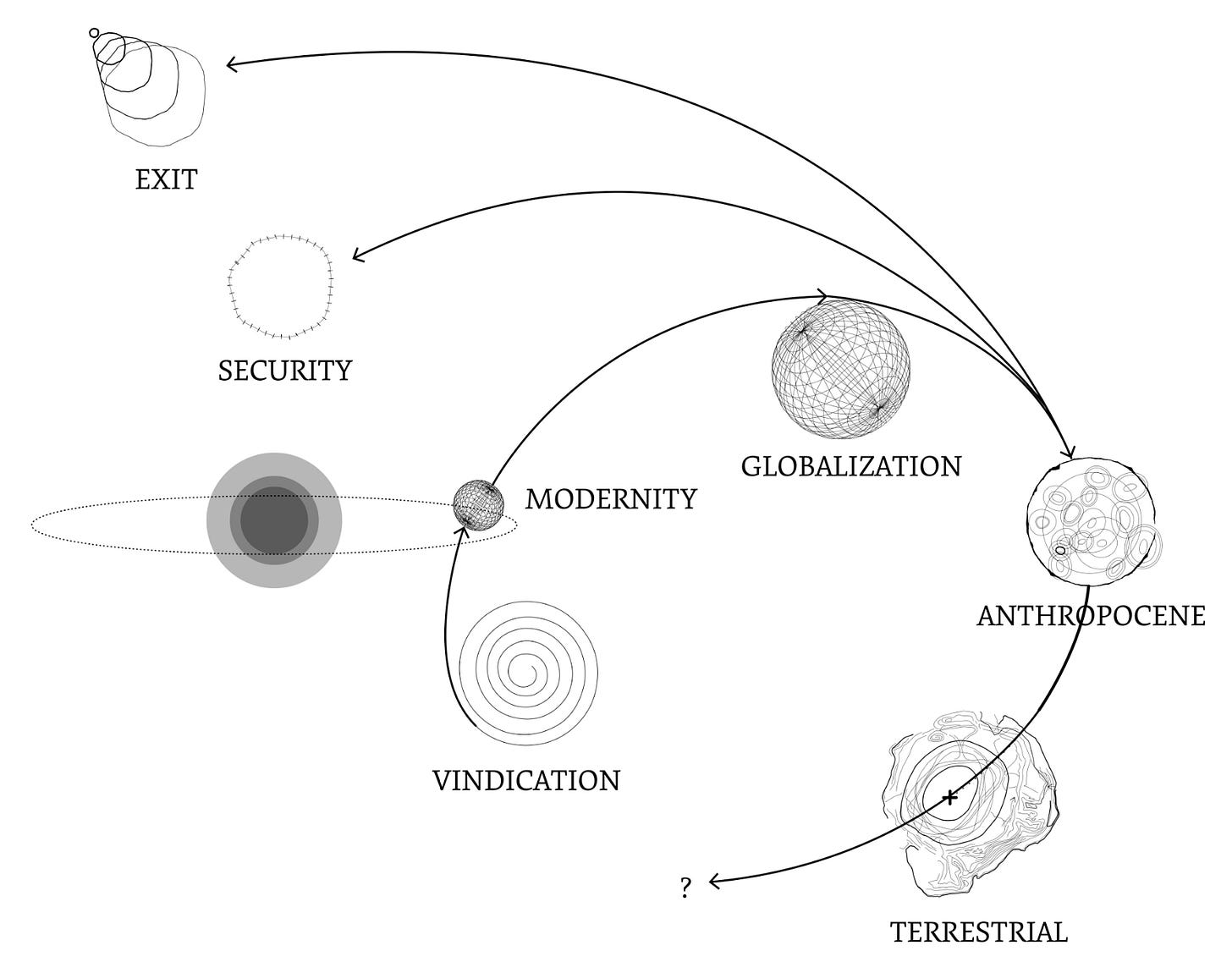
For the past couple of years, I've been trying to do some detective work and bridge the Intention-Action Gap many of us fall into. And it led to to many interesting findings- and some pretty mundane ones. But one of my own key mindset shifts was around framing the whole struggle.
I knew I did not want to create "content", or "courses", or "products". I did not want to run "cohorts" - I wanted to take people on Quests and Adventures. I started framing everything as a Hero's Journey (and now building what I call " a chrysalis".
I believe a lot of our modern problems are rooted in our myopic, compartmentalized view of our reality: chopped up, niched down; from nowhere to nowhere, like short bursts and glimpses; totally atomized. We need more framing, narratives, and sensemaking. But in order to do that, we need to pause, take a step back, and stay with the ambiguity long enough to see the patterns emerge.